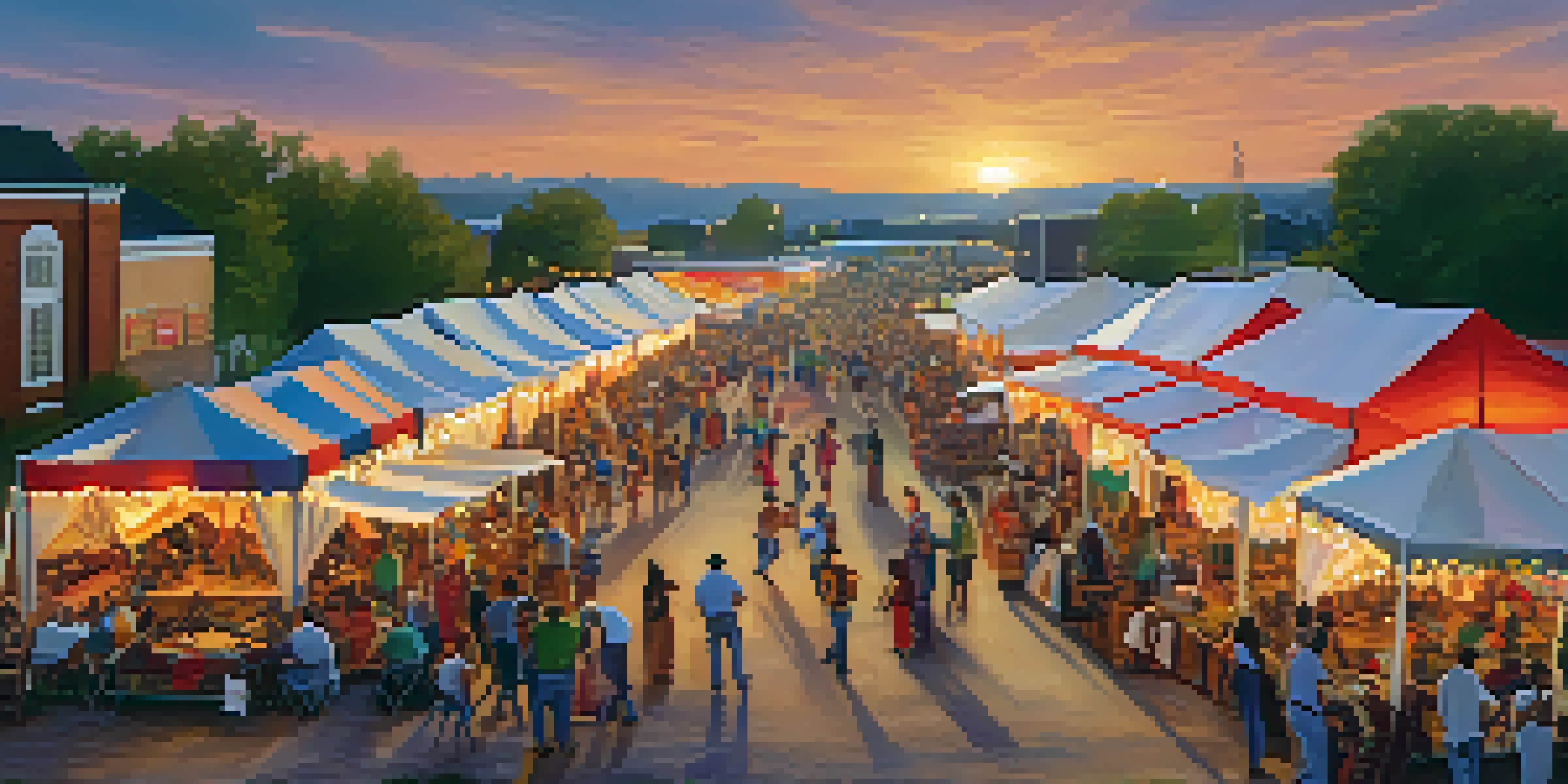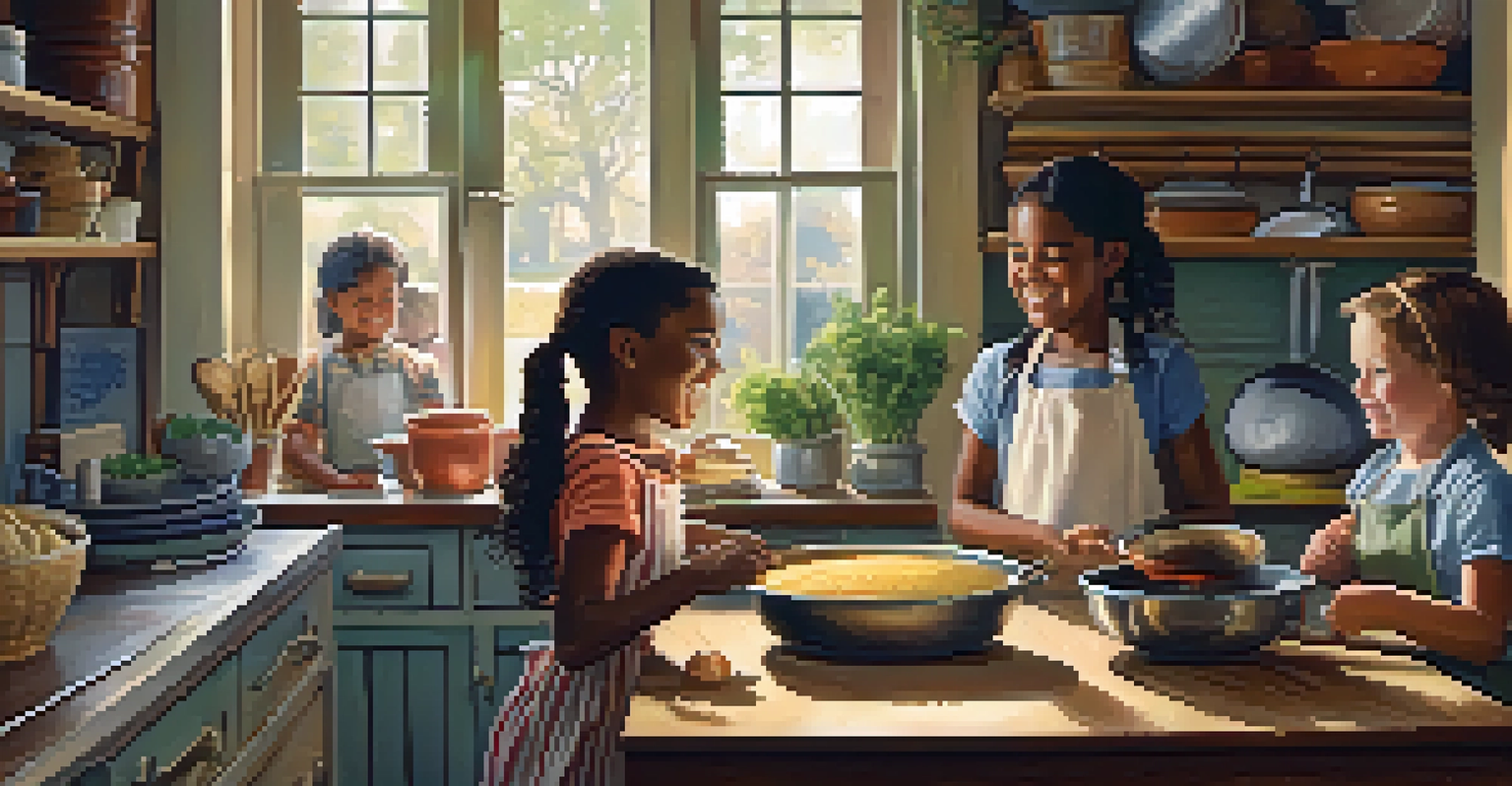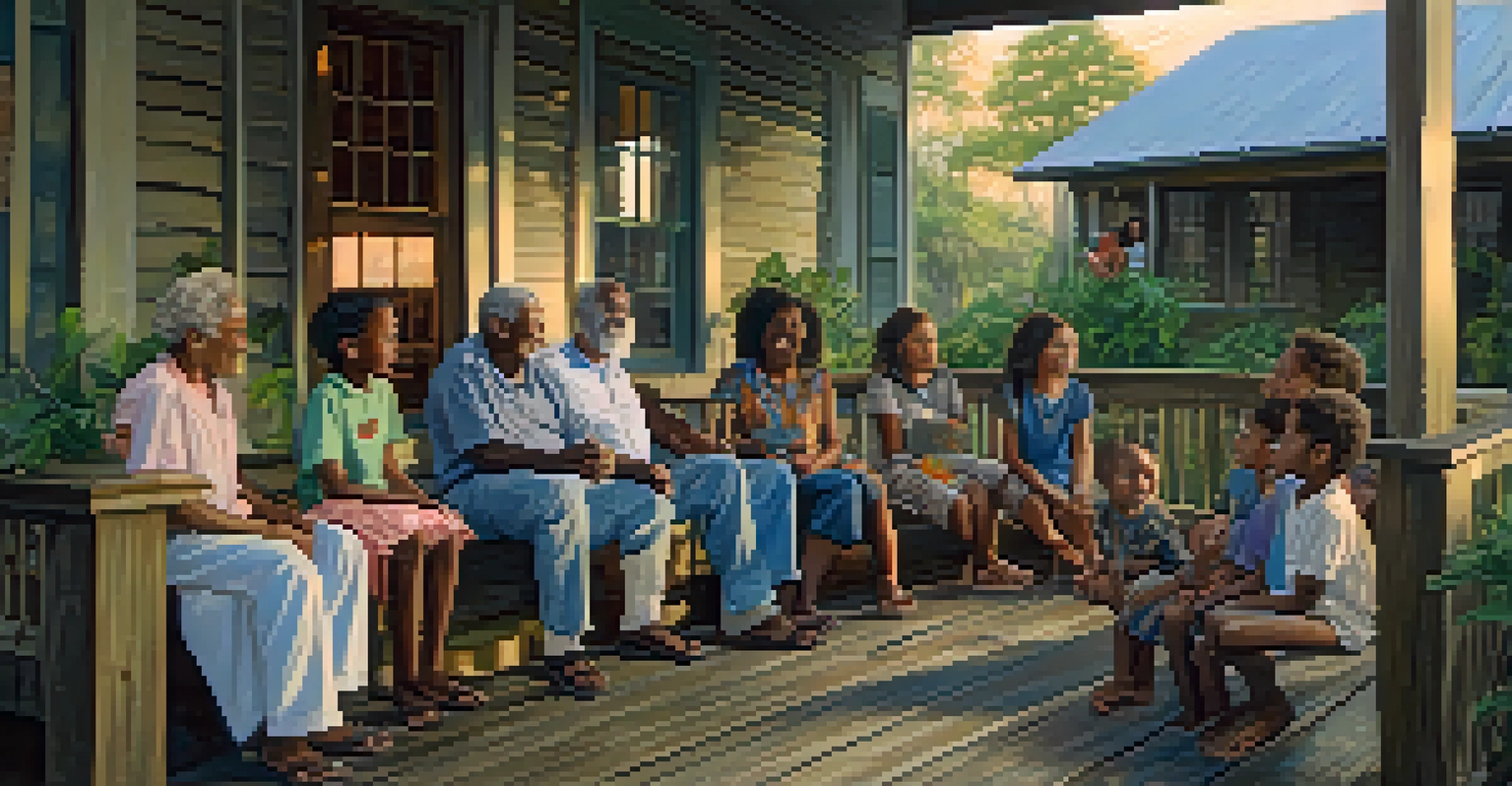Preserving Southern Cultural Heritage for Future Generations

Understanding Southern Cultural Heritage and Its Importance
Southern cultural heritage encompasses a rich tapestry of traditions, music, cuisine, and stories that define the region. It reflects the unique history and experiences of diverse communities, from the early Indigenous peoples to modern-day residents. This heritage is not just a relic of the past; it shapes identities and fosters a sense of belonging among people.
A people without the knowledge of their past history, origin and culture is like a tree without roots.
Recognizing the importance of preserving this cultural legacy is vital, as it serves as a bridge connecting generations. When we understand our roots and the struggles of those who came before us, we cultivate empathy and respect for our shared history. This understanding empowers communities to celebrate their uniqueness while fostering inclusivity.
Moreover, preserving Southern cultural heritage can stimulate local economies through tourism, education, and artisanal crafts. By showcasing traditional music, dance, and food, communities can attract visitors who are eager to experience the authentic Southern lifestyle, benefiting both residents and local businesses.
The Role of Education in Cultural Preservation
Education plays a crucial role in preserving Southern cultural heritage, as it helps impart knowledge and appreciation for traditions to younger generations. Schools, community centers, and cultural institutions can create programs that teach students about local history, traditional arts, and folklore, ensuring that these stories and skills are not lost.

Incorporating hands-on experiences, such as workshops in cooking Southern dishes or learning traditional dances, can make these lessons engaging and memorable. When children and teenagers actively participate in cultural practices, they are more likely to carry these traditions into adulthood.
Preserving Heritage Builds Community
Understanding and preserving Southern cultural heritage fosters a sense of belonging and connection among diverse communities.
Additionally, collaboration with local elders and cultural practitioners can enhance educational initiatives. By inviting these respected figures to share their knowledge and experiences, students gain authentic insights, fostering a deeper connection to their heritage.
Utilizing Technology to Document Traditions
In an increasingly digital world, technology offers powerful tools for documenting and preserving Southern cultural heritage. From online archives to social media platforms, communities can share stories, music, and art with a global audience. This not only raises awareness but also invites collaboration and exchange of cultural ideas.
The stories we tell ourselves shape our identity, and the narratives we pass down preserve our heritage.
For example, creating multimedia projects that showcase traditional music or oral histories can help capture the essence of Southern culture. These digital records serve as valuable resources for future generations, allowing them to connect with their heritage even if they are geographically distant.
Moreover, technology can facilitate virtual events, enabling people to participate in cultural celebrations and workshops from anywhere. This accessibility broadens the reach of Southern heritage, ensuring that it remains vibrant and relevant in a fast-paced world.
Community Festivals: Celebrating Local Heritage
Community festivals are a fantastic way to celebrate and preserve Southern cultural heritage. These events bring people together to showcase local traditions through music, food, art, and storytelling. They create an opportunity for residents and visitors alike to experience the rich tapestry of Southern culture firsthand.
Festivals often highlight regional specialties, such as barbecue contests or bluegrass music competitions, allowing participants to share their skills and knowledge. This fosters a sense of pride in local customs while encouraging cross-generational learning as families participate together.
Education as a Cultural Bridge
Education plays a crucial role in passing down traditions, ensuring younger generations appreciate and engage with their cultural legacy.
Moreover, festivals can serve as platforms for cultural exchange, inviting diverse communities to share their traditions. This not only enriches the festival experience but also promotes understanding and unity among different cultural groups within the South.
Supporting Local Artisans and Craftspeople
Local artisans and craftspeople are vital to preserving Southern cultural heritage, as they keep traditional skills and techniques alive. From quilt-making to pottery, these crafts embody the history and creativity of the region. Supporting these artisans not only helps sustain their livelihoods but also nurtures cultural identity.
By promoting local markets and art fairs, communities can encourage the appreciation of handmade crafts while providing artisans with a platform to showcase their work. This creates a direct link between consumers and the rich stories behind each piece, fostering a deeper understanding of Southern heritage.
Additionally, workshops and apprenticeships can help pass down these skills to younger generations. When local youth learn from experienced artisans, they not only gain valuable skills but also develop a sense of pride in their cultural legacy.
Preserving Southern Cuisine as Cultural Heritage
Southern cuisine is a delicious aspect of the region's cultural heritage, reflecting a blend of flavors and traditions. From gumbo to cornbread, each dish tells a story of the people and cultures that contributed to its creation. Preserving these culinary traditions is essential for maintaining the region's cultural identity.
Cooking classes and community cook-offs can be excellent ways to engage people in the art of Southern cooking. By teaching recipes and cooking techniques passed down through generations, communities can foster an appreciation for their culinary heritage. These gatherings also serve as opportunities for bonding and storytelling, enriching the experience.
Technology Enhances Cultural Access
Utilizing technology helps document and share Southern cultural heritage, making it accessible to a global audience and ensuring its vibrancy.
Moreover, documenting traditional recipes and cooking methods in cookbooks or online platforms can help keep these culinary traditions alive. This not only provides a resource for home cooks but also creates a sense of connection to the past, ensuring that future generations can enjoy and share these flavorful legacies.
The Power of Storytelling in Cultural Preservation
Storytelling is a powerful tool for preserving Southern cultural heritage, as it allows communities to share their experiences, values, and traditions. Oral histories, personal anecdotes, and folktales provide rich insights into the lives of those who shaped the region, making history relatable and engaging.
Hosting storytelling events, whether in libraries, schools, or community centers, can encourage people of all ages to participate. These gatherings create a space for individuals to share their stories and listen to others, fostering a sense of community and shared identity.

Incorporating storytelling into educational programs can also enhance students' understanding of their heritage. By learning to appreciate the art of storytelling, young people can become the next generation of cultural custodians, sharing their own narratives while honoring those that came before.